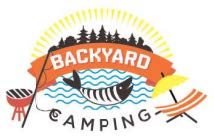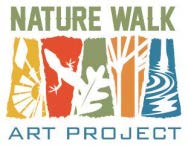1. Day trip: If parents are new to vacationing with children, they might try starting small with a day trip. They can write down all the things that worked and didn’t work when they return to make the next trip even more successful.
2. Camping: Not only are there ample learning opportunities with the environment and activities, it’s also inexpensive and there are usually fewer people around. Parents can set up a rotating family “watch” system so each person takes turns being the designated “watcher” if someone in the family requires 24/7 supervision. That ensures the individual is always cared for and gives respite to other family members during the trip.
3. Flying: There is a lot to juggle when flying with children so splitting up and having one person board first with the gear and having another person board last with the children can decrease the in-plane time. Some airlines are now offering trial runs for families to practice steps such as progressing through security before their big trip. Additionally, the Friendship Circle has prepared a great pre-flight checklist for parents to reference:
friendshipcircle.org/blog/2012/01/09/a-special-needs-pre-flight-checklist
4. Accommodations: These days, there are travel agents, cruise lines, and family camps dedicated to helping special needs families build a fun family vacation. Some cruise lines even hire specially trained staff to provide respite care as well as private activities to allow guests to use their entertainment venues with accommodations. Families may look into:
• friendshipcircle.org/blog/2012/06/06/32-vacation-destinations-for-individuals-with-disabilities-or-special-needs/
• celebritycruises.com/special-needs/guests-with-autism
HANGING OUT AROUND THE NEIGHBORHOOD
Sometimes, summer fun is waiting just outside the front door or literally on the kitchen floor. This is where parents can create many opportunities not only for fun but also for learning. Many parents worry about regression of skills during those slower, more relaxed summer days, but with a little creative thinking and planning, they can start thinking in such a way where they naturally integrate teachable opportunities into everyday life. It takes some practice but parents can be extremely effective teachers.
It's important to branch out beyond academics when thinking about preventing skill regression during summer. Parents can sneak in learning opportunities at every turn with a little prep work. Thinking about the child’s goals, challenges, and what is motivating to them can make up a recipe for a fun learning experience. Sometimes it’s helpful for parents to make a list of goals or hopeful skills as a visual reminder for themselves to practice each day or week and hang it on the refrigerator. Thinking about how to integrate those skills into everyday life is a great exercise for parents with the hopes of it becoming more automatic over time.

Step
Set up: pitching a tent, gathering blankets/pillows/ materials to make s’mores, etc.
Campout- making smores, engaging in stories, sleeping
Clean up- breaking down the tent, returning materials
Sample Skills Exercised
Gross motor, fine motor, following single and multi-step instructions, counting, object identification, locating objects
Gross motor, fine motor, safety skills, following single and multi-step instructions, waiting, taking turns, listening, speaking, tolerating change in routine, sleeping in a novel location
Gross motor, fine motor, locating objects, memory

Step
Choose appropriate mode of transportation- walking, biking, riding in wagon/wheelchair/mobility device
Identify items in nature to be used for project- spotting items, seeing/smelling/feeling, taking them home
Creating art project- gluing, cutting, drawing, coloring, hanging, presenting to family members
Sample Skills Exercised
Gross motor, sitting, waiting
Gross motor, fine motor, object identification, receptive or expressive color identification, attribute identification (e.g., smooth, bumpy, small, big, etc.), sensory toleration
Creating art project- gluing, cutting, drawing, coloring, hanging, presenting to family members Gross motor, fine motor, choice making, waiting, following single and multi-step instructions, answering questions